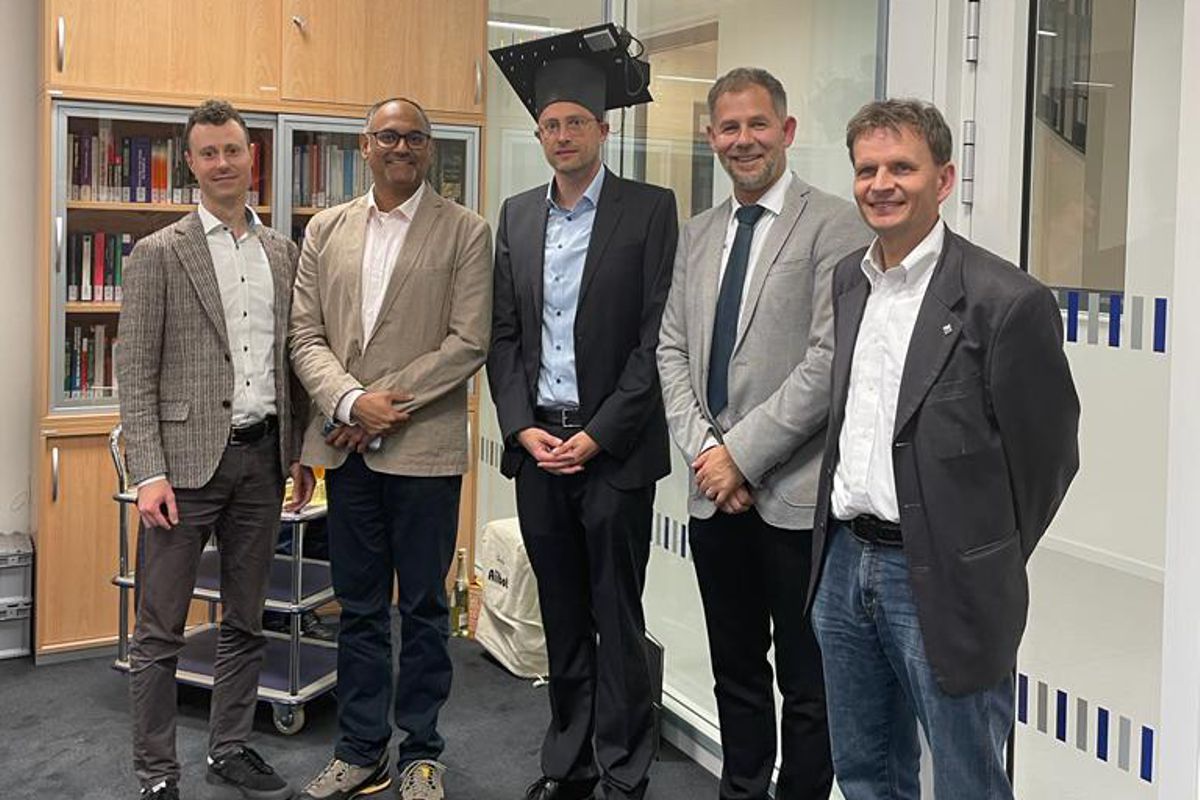No. 17 - Arthur Wolf
Arthur Wolf: Entwurf und Evaluierung von Algorithmen für ein Innenraumkommunikationssystem
Shaker-Verlag, 2023
Commission
- Prof. Dr.-Ing. Gerhard Schmidt
(first reviewer) - Prof. Dr.-Ing. Tim Fingscheidt
(second reviewer) - Prof. Dr.-Ing. Nilesh Madhu
(third reviewer) - Prof. Dr.-Ing. Michael Höft
(examiner) - Prof. Dr.-Ing. Jan Trieschmann
(head of the examination board)
Abstract
The communication inside a car is often difficult due to the unfavorable seating position and the high background noise level. An in-car communication system (ICC) can improve the communication between passengers while driving. For this purpose, the voice is recorded with a close to the speaker mouth placed microphone and, after appropriate signal processing, it is played back via close to the listener positioned loudspeakers. The ICC system operates in a closed electro-acoustic loop. Therefore, the maximum system amplification is limited by the feedback of the playback signal. Because the system gain required for sufficient support is often in the range of the maximum gain, additional measures must be taken to suppress feedback. In addition to the speech and the feedback signals, the microphones also pick up the driving noises within the vehicle. If the noisy microphone signal is only amplified, the recorded interference will have a negative effect on the speech quality. These signal components should be reduced by suitable noise suppression to improve the ICC output signal.
For the passengers, the perceived system quality depends not only on the amplification level but also on the delay introduced by the ICC system between the direct sound and the system reproduction. This delay should be as low as possible and typically not exceed 15 ms. The acoustic localization of the speaker and the speech intelligibility of the playback is disturbed by a long delay. Due to psychoacoustic effects, the permissible delay depends heavily on the system gain and the arrangement of the loudspeakers in relation to the passengers.
In this work, the signal processing for an ICC system, which works robustly in a vehicle under real conditions, is presented. The focus is on runtime-optimized and computationally efficient algorithms for noise and feedback suppression. The delay at the listener’s ear is reduced to only 10 ms. With the feedback suppression measures described here, the ICC system can also be operated around maximum system gain without instabilities. The implementation of algorithms as real-time digital audio processing and the buildup of a real time demonstrator vehicle made it possible to evaluate the improvement in speech intelligibility achieved in the vehicle environment. In addition to the improvement in speech transmission recorded by measurements, the speech intelligibility and speech quality were confirmed in experiments by test subjects. The results of this evaluation show that with an active ICC system and the signal processing and measures presented here, the passengers on the rear seats (worst listening position) can hear and understand the driver just as well, as the front passenger (best listening position), even at high speeds.

 Visit of the Hans Böckler Foundation
Visit of the Hans Böckler Foundation